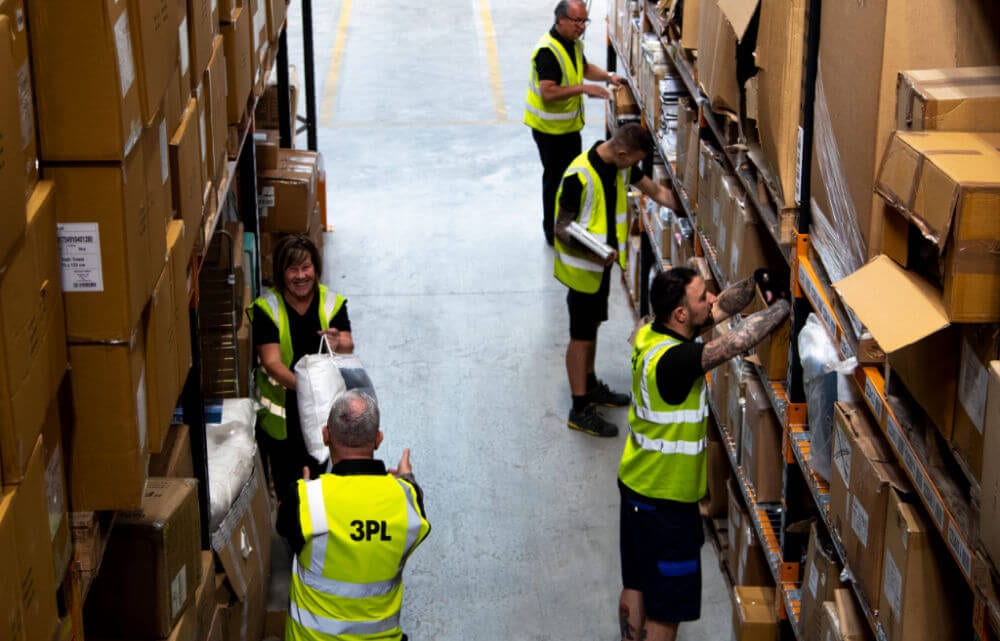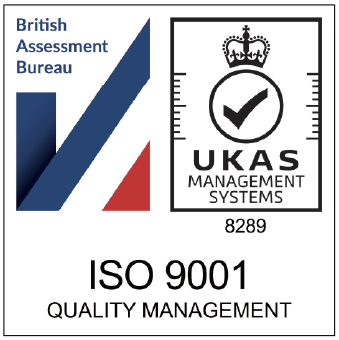When it comes to outsourcing logistics and fulfilment for your eCommerce store, the choices can seem almost endless. Plus, with all of the industry terminology that gets thrown around, it can be difficult to know which outsourcing option is best for you. It’s a situation that leads to a lot of questions for eCommerce retailers. One of the questions we get regularly here at 3PL is ‘what is the difference between contract logistics and 3PL?’ Well, keep reading and we’ll tell you!
What is contract logistics?
Contract logistics is a rather vague term, however, the generally agreed-upon definition falls upon ‘a company which focuses on a single part of the supply chain; predominantly delivery management’.
A classic example of a contract logistics company is a freight forwarder. They specialise purely in the movement of cargo. They will oversee things such as customs clearance, completion of relevant documentation and shipping.
If you’re looking for a company to oversee a particular part of your supply chain (whilst you take care of the rest), then a contract logistics company could be a great solution for your eCommerce store.
However, if you’re looking to outsource a much greater chunk of your shipping and fulfilment operation, then you’ll have to consider another option; a 3PL.
What is a 3PL?
A 3PL (third-party logistics) company takes care of a very broad array of tasks and activities associated with shipping and fulfilment. As we’ve alluded to above, a 3PL will manage a much greater portion of your supply chain than a contract logistics provider.
Activities undertaken by a 3PL can include:
- Inventory management (including receiving and quality assessing inventory on behalf of an eCommerce retailer).
- Order management and processing.
- Picking and packing.
- Order tracking and customer communication and service.
- Returns management.
As you can see, a 3PL can provide a much more detailed, end-to-end service in comparison to a contract logistics provider.
What’s the difference between contract logistics and 3PL?
With the advent of the internet and the rise of multiple, small eCommerce stores, 3PLs have grown in popularity, as they take away the hassle of inventory management, shipping and fulfilment from small businesses.
They can provide a complete end-to-end service, whilst contract logistics companies tend to focus on addressing individual weak spots within a supply chain.
In general, we’d suggest that a contract logistics company is more suited to large businesses that have pre-existing supply chains in place. A good contract logistics company can spot weak points within that supply chain and fix them – for example, by improving freight forwarding or their overall delivery management.
To provide you with an ‘at a glance’ way of differentiating between contract logistics providers and 3PLs, we’ve provided you with a table below:
| Service | Contract Logistics | 3PL |
| Inventory management | ❌ | ✅ |
| Delivery management | ✅ | ✅ |
| Warehouse management | ❌ | ✅ |
| Order fulfilment | ❌ | ✅ |
| Shipping and tracking | ❌ | ✅ |
| Returns management | ❌ | ✅ |
So, it’s clear. If you want to outsource all (or a large portion) of your fulfilment and shipping activity, then a 3PL is the best choice.
If, however, you simply want someone to take care of shipping for you, then a contract logistics provider may be the more efficient option; but remember, you’ll still be responsible for everything else such as inventory management, order processing etc.
How to choose the right logistics option for your eCommerce business
At this point, you may be in a bit of a quandary. Particularly if your eCommerce store is still in its early stages of growth. Whilst you’re still dealing with only a few hundred orders each month you may decide it’s easier, and cheaper, to simply use a contract logistics provider.
However, with a 3PL you can be in a position to really drive the growth of your business thanks to their scalable fulfilment and shipping services.
So, which logistics option is right for your business? Let’s take a closer look at each option.
When you should use a contract logistics provider
Whilst it’s hard to put an exact figure on it, if you are receiving fewer than 250 orders per week, it makes sense to continue to carry out a large chunk of your fulfilment yourself, and use a contract logistics provider to take care of a single thing; shipping.
With fewer than 250 orders per week, you are still in the realm where it makes financial sense to do most of the leg work yourself. However, shipping can be quite complex – particularly if you are selling your goods into international markets. That’s where a contract logistics provider can add value to your supply chain.
Before you make the decision to keep most of your fulfilment in-house though, you should think carefully about the resource implications. You’ll still need to market and promote your business, as well as fulfilling orders.
If you and your team are spending an inordinate amount of time dealing with shipping and fulfilment, your business may not grow as quickly as you’d like.
In other words, if you are particularly growth-oriented, and have big plans for your eCommerce business, then a 3PL will be the best route for you.
When you should use a 3PL for your logistics
As we mentioned earlier, the decision to choose a 3PL comes down to two main things; scale and ambition.
Once your eCommerce business begins to make 250 sales or more per week, then you’ll have reached the scale at which it makes financial sense to use a 3PL for your fulfilment and shipping.
A 3PL is highly specialised in dealing with shipping and fulfilment, and they’ll certainly be able to deal with large volumes of orders better than you and your team can. Remember, a 3PL has one job in this instance! You have to run the rest of your business at the same time.
Aside from scale (although this point is related to it), if you have ambitious growth plans for your eCommerce store then it makes complete sense to outsource your shipping and fulfilment to a 3PL.
With fulfilment and shipping taken care of by a third-party provider, you’ll be able to focus on aggressive growth strategies, using multi-channel marketing and other methods to boost your sales.
So, if you really want to take your eCommerce store to the next level, choose a 3PL.
Let 3PL take care of your fulfilment and shipping
We hope you’ve found this guide to the differences between contract logistics and 3PLs helpful.
If you feel like your eCommerce store is ready to go to the next level and you’re receiving 250 or more orders each week, then speak to 3PL today and find out how we can boost your business.
Speak to 3PL about fulfilment and shipping requirements now
For more eCommerce business, marketing and fulfilment advice, read the 3PL blog…
Fulfilment Centre vs Warehouse: What’s the Difference? | What Is the Difference Between 3PL & 4PL? | What Are the Key Factors to a Successful eCommerce Order Fulfilment Process?
Speak to 3PL about your order fulfiment
It’s time to supercharge your business and overtake your competitors. Speak to 3PL today and find out how we can take your ecommerce and B2B fulfilment to the next level.


